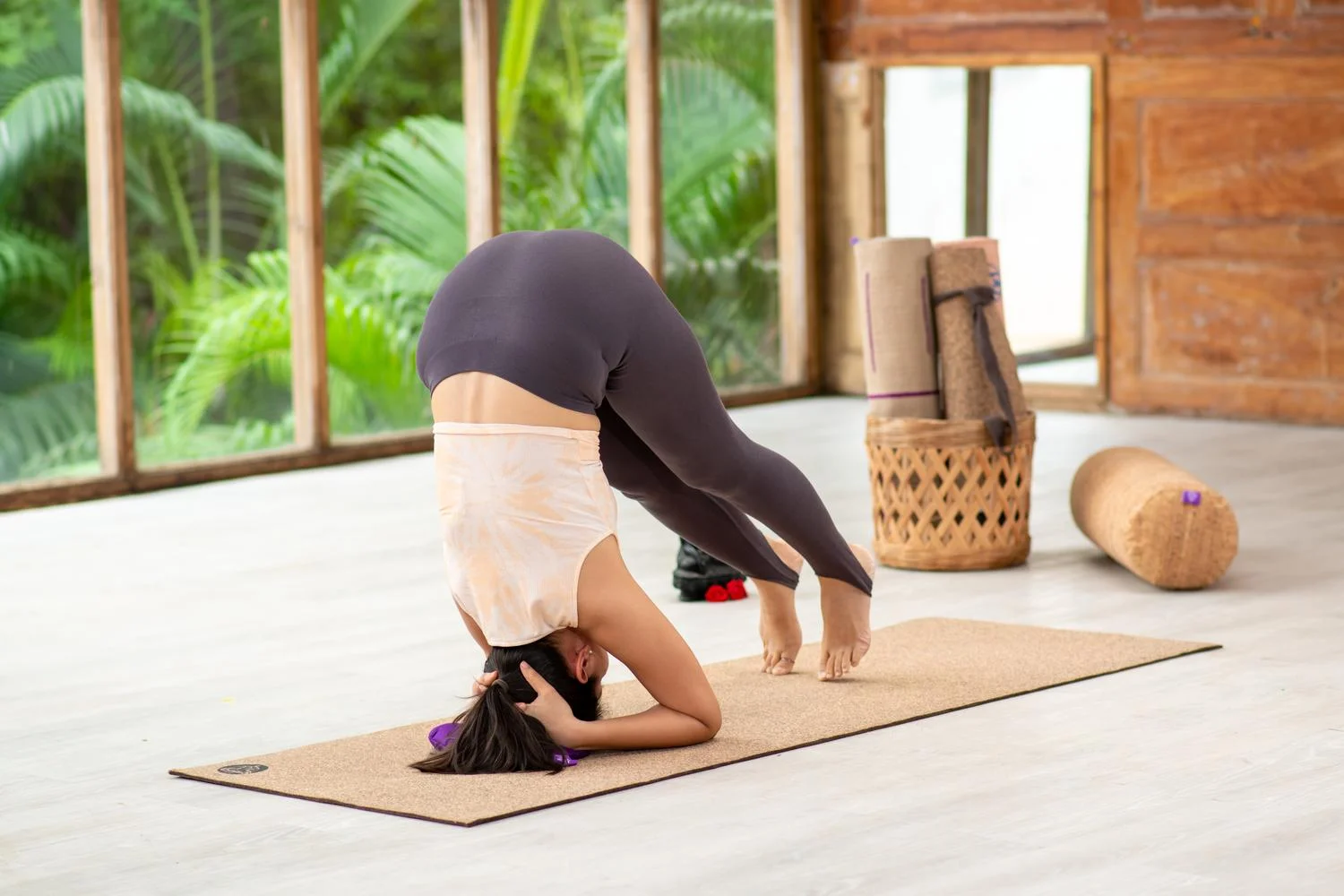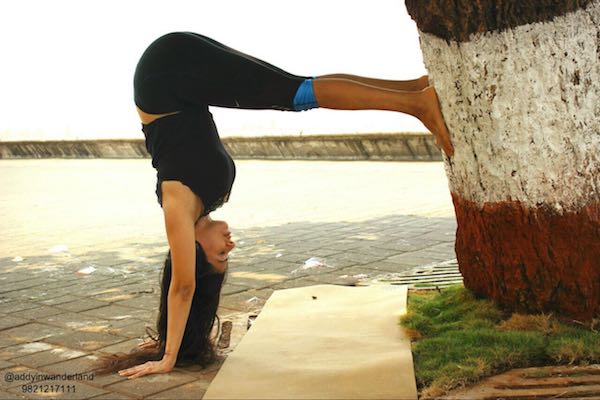
Benefits Of Yoga Before Bedtime
Don’t we all want a good night’s sleep? Lack of sleep can affect your overall health and wellbeing, increase your risk of heart diseases, make you more prone to obesity and high blood pressure and most importantly, it can mess with your emotions. Have you ever noticed your mood swings after just one late night? Sleep deprivation can result in irritability, depression, anxiety and anger. Just going to bed on time alone is not sufficient. It is the quality of sleep and the state of physical and mental relaxation that matters.
Many people complaint that despite sleeping for long hours, they still feel a sense of heaviness or tiredness. This is because a complete state of relaxation is difficult to achieve when the body and mind are stressed and tired. Long of hours of standing or sitting result in postural abnormalities which put excess strain on back muscles. Likewise, staring at the computer or mobile, worrying about work deadlines, irregular eating habits, alcohol, smoking, etc., can prevent our mind from completely relaxing. The practice of yoga or developing a bedtime routine can enhance the quality of your sleep and improve your wellbeing. It relaxes the whole psycho-physiological system and helps reduce muscle tightness and mental stress. The following are a list of benefits of yoga before bedtime
Helps Fight Insomnia and Help You Get Deep and Sound Sleep
A good night’s sleep is crucial for good physical and mental health. However, daily stressors and negative reaction to stress can prevent your body and mind from relaxing enough to fall asleep. Facts from latest insomnia statistics are shocking and throw light on the need to address sleeping disorder that directly impacts a person’s well-being.

Between 40% and 60% of people over the age of 60 suffer from insomnia.
1 in 3 people suffer from some form of insomnia during their lifetime.
Women are up to twice as likely to suffer from insomnia than men.
90 % of cancer patients experience insomnia symptoms while receiving treatment.
The good news is that yoga has been proven to cure sleeping disorders. When people who have insomnia perform yoga on a daily basis, they sleep for longer, fall asleep faster, and return to sleep more quickly if they wake up in the middle of the night.
Helps Regulate Body Weight
A regular yoga practice can help lose excess body fat, especially in styles like Ashtanga yoga, Vinyasa or Hot Yoga. However, including a quick bedtime yoga routine can also help regulate body weight as study shows that there is a link between weight gain and sleep apnea.

People who suffer from sleep deprivation are 27% more likely to become overweight or obese.
A study at Columbia University revealed that people who sleep five hours or less per night almost double their risk of becoming obese.
Sleep deprivation may be a key risk factor for developing Type 2 diabetes and hormonal imbalance which may stimulate hunger and also slow down the rate at which your body burns calories.
Apart from a good night’s sleep, yoga stretches can help you take back control of your diet, burn calories and help you inculcate healthy eating habits and adopt a holistic lifestyle.
Eases Muscle and Joint Pain and Releases Any Physical Tension
Night time body ache is a cause of distress for a majority of people. Long day at work can wear you down and shut down body’s defence mechanism. And without the ability to ease the pain, inflammation, tightness and stress, having deep, sound sleep is next to impossible.

A review of 20 years worth of studies conducted by researchers at Duke University Medical Center found that yoga is effective in the treatment of chronic pain, including osteoarthritis, carpal tunnel syndrome, and fibromyalgia.
According to the American College of Rheumatology, fibromyalgia affects 1 in 50 Americans, with seven times more frequency in women than in men, making morning stiffness a common problem.
Being overweight, poor-diet, incorrect sleeping posture, or even weather change can cause muscle stiffness and joint pain.
Yoga has the ability to immediately relax the mind body by increasing supply of oxygenated blood, stretching tense muscles, shifting mental focus inward while emphasizing on breathing. Yoga stretches release those feel-good endorphins, get blood moving, and help clear nasty toxins from the body. Performed correctly, yoga’s fluid movements allow swollen or otherwise painful joints to glide smoothly over one another, increasing mobility and strength without excess wear and tear, says Cynthia Maltenfort, a yoga instructor at Sun and Moon Studios in Virginia.
Improves Breathing and Boosts Relaxation of Body and Mind
Both sleep apnea and snoring occur due to incorrect breathing, specifically over breathing or hyperventilation.The brain stem signals the respiratory muscles to breathe harder and faster to remove carbon dioxide through exhalation and vice versa when the level is high.

Hyperventilation syndrome is a breathing disorder that affects 1 in 10 people in normal population. It occurs mostly in people who are nervous, tensed, breathe shallowly and have medical conditions like lung disorders.
Snoring is also a serious and widespread problem and is usually caused due to stress, circulatory problems, obesity, sinus and nasal problems, alcohol consumption, smoking and at time genetics may play a role.
Yoga is a combination of physical exercise and breathing which helps increase lung capacity and reduce hyperventilation symptoms. Nadi Shodhana and Brahmari Pranayama help keep the air passage open, which regulates snoring and sleeping disorders.
Improves Vitality
If you feel completely exhausted after a long day at work or tired even during the day, then you may have low vitality. This depletion of energy in your body can affect our day to day functioning and lead to poor digestion, low immunity and even affect your relationships and sex life. Experts believe a positive correlation exists between sleep quality and sex life quality, urging individuals to maximize their nightly rest to stay happy.

A recent Consumer Reports survey showed the top reason couples gave for avoiding sex was “too tired or need sleep.” Testosterone gives much-needed energy boosts and increases sexual vitality and lack of sleep can lower one’s testosterone levels.
1 out of 4 people suffer from tiredness in United States and Europe. According to NSF study 25% of all women suffer from clinically significant daytime sleepiness.
Yoga asanas performed slowly with breath awareness, before bedtime will improve the flow of prana in the body, remove the energy blockages, promote balance and endurance, and wake your body’s muscles naturally through deep stretching movements. This helps boost metabolism and also burn energy, which is ideal for the body when it is sleeping for 6-10 hours and not being active.
Helps Calm The Mind and Destress
Often, we have trouble falling asleep because the mind is still working, thinking about work, deadlines, finances, worrying about all those things you should have said and done, or planning for tomorrow. Tension also builds up due to sitting all day and working on the computer, answering phone calls, etc. A relaxed session of yoga helps relax the body, stop the mind-chatter and revitalise the spirit. It shifts the focus inward and eases out muscle stiffness.

Modern day stresses are more likely to be psychological in origin and prolonged in nature (eg: work-related stress, financial worries, interpersonal relationships, chronic illnesses). They can set off the body’s alarm mechanism and the associated hormone surge.
Over-exposure to those stress hormones can, in turn, have a range of negative impacts on the body’s systems – brain, cardiovascular, immune, digestive, musculoskeletal and so on.
Relaxation is an effective way to help reduce muscle tension associated with stress. There are many different relaxation techniques eg: yoga, tai chi, meditation and massage.For the body to relax at the cellular level, we need to shift to a state of deep rest and calm, which can be achieve through yoga and meditation. Recent trials have shown that such is yoga’s power to restore mental calm, it’s helpful for patients with post-traumatic stress disorder (PTSD).
Helps Reduce Anxiety and Restores Mind-Body Balance
You may assume that socialising, watching TV, drinking, etc, may help you fight depression and anxiety. However, these activities put our body in a state of biochemical tension, pumping out adrenalin, making it more difficult for you to get a good night sleep. Whereas a mind-body activity like yoga, where emphasis is given on restful breathing, has the ability to release tension and lower cortisol levels, which is usually elevated in people suffering from anxiety and depression. Yoga can reduce anxiety and stress by stimulating the parasympathetic nervous system, which sends the “rest and digest” signal.

90% of people who suffer from depression also experience insomnia.
In 2012 a staggering 40 million prescriptions for antidepressants were written in England, up 25 million in 14 years.
Low amino acid GABA levels are associated with depression and anxiety; whereas, significantly higher levels of amino acid GABA are reported in people who practice yoga regularly. This is vital for a well-functioning brain, central nervous system and to develop a feeling of calm inside the body and mind.
A 2013 study by Massachusetts General Hospital found that the deep physiological state of rest induced by yoga bring about an immediate and positive change in immune function, energy metabolism and insulin secretion which produces serotonin, the feel-good neurotransmitter that can be stimulated artificially through anti-depressant pills. But why pop pills when you have yoga!
Improves Circulation and Cardiovascular Health
A good night’s sleep is important to maintain a healthy circulation. Some medical conditions cause poor circulation, including diabetes, heart problems, arterial issues and obesity, robbing you off your much needed sleep.

Stress contributes to blood pressure and heart rate
Yoga asanas ability to help lower your heart rate can ease the production of cortisol (the stress hormone).
Certain yoga postures like child’s pose, legs up the wall and corpse pose are very restorative to the body and also give your cardiovascular system a short break. Deep breathing also helps reduce heart rate and release stress, making it a perfect practice before bedtime.
Thus Yoga is not limited to your early morning routine. A gentle nighttime practice is a great way to end your day, got to bed in a good mood, achieve deeper sleep, wake-up without aches or stress, and ultimately, improve your whole life!
Also Read: https://www.juruyoga.com/the-meditative-rhythms-of-yoga-music/
1 Comment
-
Anne
i love these exercises, unfortunately, since the knee replacement 4 years ago.. I am very limited to the stances that you show here.. Is ther perhaps some modifications for someone like me? thanks really appreciate your articles. Anne




Anne
i love these exercises, unfortunately, since the knee replacement 4 years ago.. I am very limited to the stances that you show here.. Is ther perhaps some modifications for someone like me? thanks really appreciate your articles. Anne